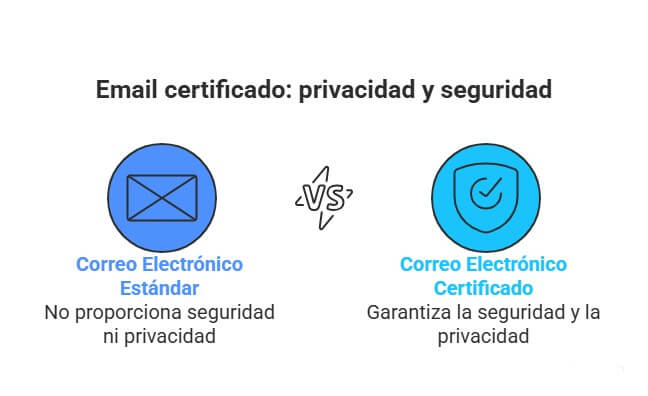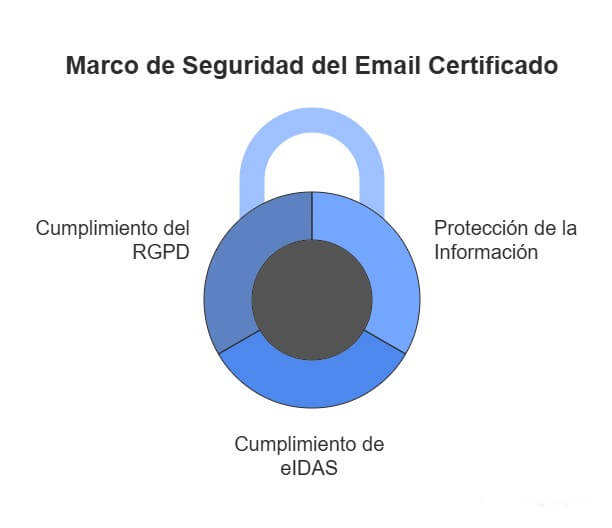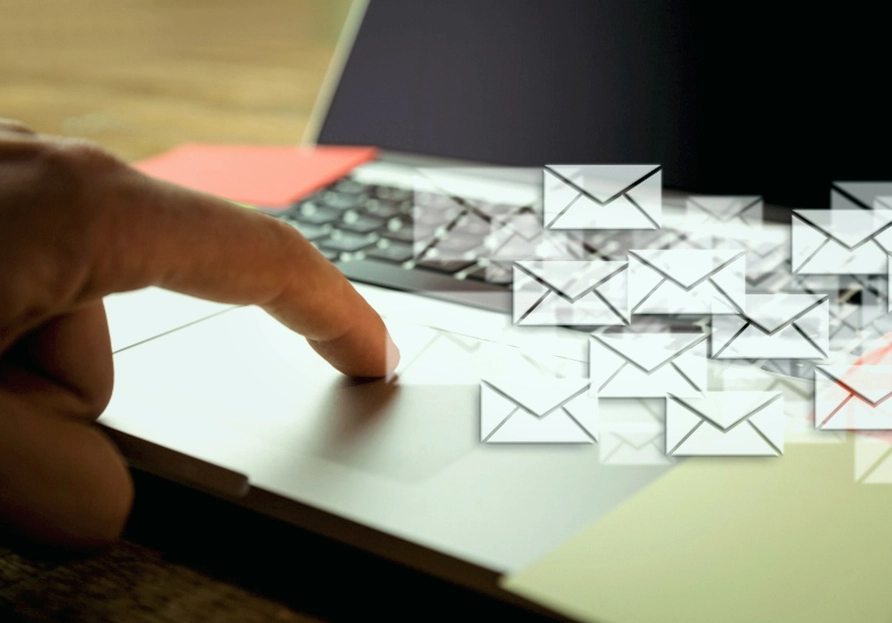Table of Contents
- Certified emails: Why are they important for privacy and security?
- Keys to ensure security when sending certified e-mails
- Secure sending methods for certified emails
- Standards and regulations related to certified email security
- Data Protection Act Compliance (GDPR)
- Practical tips for maintaining privacy in your electronic communications
- Frequently asked questions about ensuring privacy and security when sending certified emails
Every day, companies exchange key information via email: contracts, notifications, confidential documentation… In this constant flow, the importance of certified email privacy and security becomes crucial to protect data and ensure that each message reaches its destination with legal guarantees.
Here is a summary of what we will talk about next:
- Reasons to use this solution. Protecting corporate data starts with communication that leaves no loose ends.
- How to protect the sending of certified mail. Good practices, internal processes and adequate tools are key to safety.
- Ways to send certified emails securely. Which methods reduce real risks.
- Regulations governing the security of these shipments in companies. Regulations related to certified e-mail.
- Simple tips to protect your communications. Concrete actions that can greatly improve your protection.
Certified emails: Why are they important for privacy and security?
Certified e-mail guarantees, from a legal and technical point of view, that a message has been sent, received and that its content has not been modified.
For many organizations, this means shielding the traceability of sensitive documents, complying with data protection regulations and resolving legal disputes thanks to the evidentiary validity of these communications.
Find out how to ensure the legal validity of your e-mails in legal proceedings.
In industries such as legal, finance and healthcare, confidentiality and compliance are daily demands. Therefore, in these areas, the use of certified email should be part of the business operating model.

Read on to find out how you can further strengthen this practice.
Keys to ensure security when sending certified e-mails
Protecting the delivery of important notifications is not only a matter of technology, but also a matter of procedure. Among the most effective keys are:
- Establish access controls to the delivery platforms.
- Use end-to-end encryption.
- Train personnel who manage electronic communication.
- Continuously monitor the systems used.
All of this can be summarized in one main key: work with a trusted provider that offers technical guarantees, traceability and legal registration in the sending of certified e-mails.
We explain how to send a certified email and take advantage of all its functionalities.
Read on to learn about the most secure shipping methods.
Secure sending methods for certified emails
Sending methods vary in efficiency: some offer confirmation of opening, others double authentication, and the most advanced are notarized, time-stamped and end-to-end encrypted.
Here is what the regulations say about this type of business communication.
Standards and regulations related to certified email security
As we have mentioned, ensuring privacy and security when sending certified emails is essential. To this end, in addition to protecting the information, companies must demonstrate that they comply with the legal requirements in force.
Solutions with eIDAS certification provide greater legal validity within the European environment, as they comply with the standards required for trusted electronic communications.
In addition, it is crucial that the chosen method ensures the proper processing of personal data in accordance with the General Data Protection Regulation.

Data Protection Act Compliance (GDPR)
The RGPD (or GDPR) establishes that companies must guarantee the integrity, confidentiality and availability of the personal data they manage.
In this context, the use of this solution provides an additional level of security and control: it allows you to record who accesses the information, when and under what conditions, thus facilitating compliance audits.
Read on for practical recommendations that you can implement today.
Practical tips for maintaining privacy in your electronic communications
These practical tips can also be of great use in your organization to ensure maximum security in electronic communications:
- Do not share login credentials to certified email platforms.
- Implement double verification on all corporate accounts.
- Periodically review internal user permissions.
- Validates that the provider of this service complies with current regulations.
- Use notification systems that include proof of delivery and reading.
At MailComms Groups we help organizations implement communication solutions with legal value that secure every step of the process. And yes, that includes email certified through CertySign.
If you want to know how to integrate our services into your daily operations, contact our team today or request your demo. Because the importance of certified email privacy and security is not just a technical issue: it’s a matter of trust.
Frequently asked questions about ensuring privacy and security when sending certified emails
How is privacy guaranteed in certified emails?
Thanks to techniques such as content encryption, secure protocols and recipient access control, the message can only be read by the intended recipient. In addition, the content cannot be altered without leaving a trace.
What authentication methods are used to secure certified emails?
Authentication methods range from passwords and temporary tokens to digital signatures and two-factor verification.
Understand the differences between electronic signatures and digital signatures to choose the most secure option.
How can I verify if a certified email has been securely delivered?
Certified email systems generate a detailed report with timestamp, recipient IP and confirmation of open or rejection if established, which is archived as evidence.
Can I send certified emails internationally?
Yes, as long as the provider has legal approval to operate in those countries and the shipment complies with local data protection regulations. At MailComms Group we work with international standards to guarantee this.
